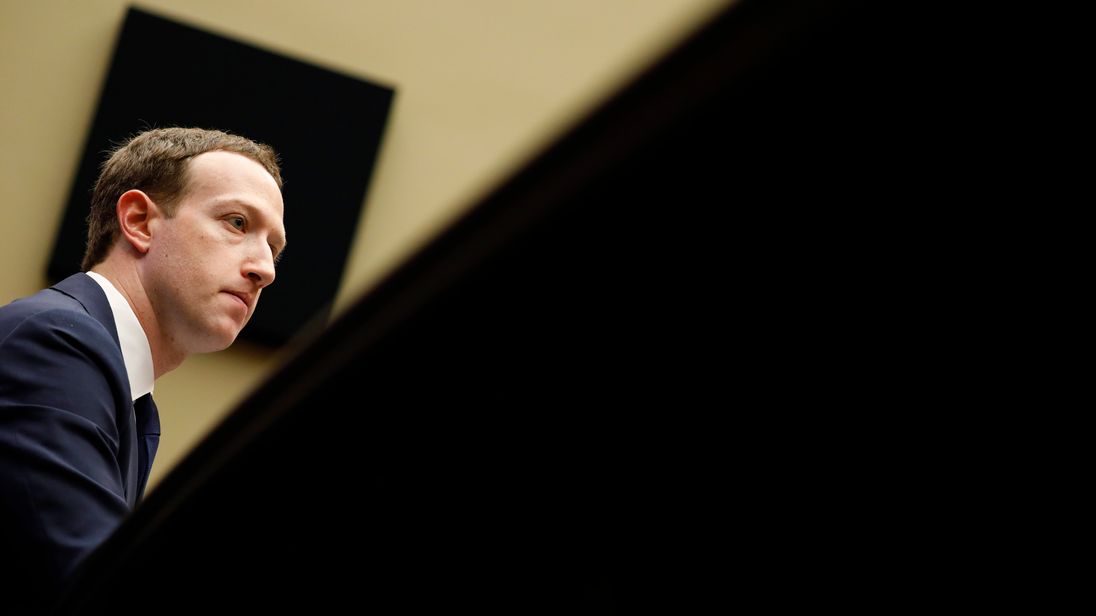Mark Zuckerberg has revealed his personal data was among that improperly acquired by election consultancy firm Cambridge Analytica.
Facebook's chief executive made the admission during the second day of his questioning in Congress.
Congresswoman Anna Eshoo asked if his own data had been "included in the data sold to the malicious third parties".
Mr Zuckerberg delayed before replying: "Yes."
In statements released ahead of the hearing, he admitted to being "idealistic" and said he did not grasp how the data of the platform's two billion people could be abused.
He said: "We didn't take a broad enough view of our responsibility, and that was a big mistake. It was my mistake, and I'm sorry.
"I started Facebook, I run it, and I'm responsible for what happens here."
:: Facebook admits Zuckerberg uses secret tool to unsend messages
The 33-year-old founder and CEO of the world's largest social media company was grilled for hours on Tuesday and Wednesday by legislators in Washington DC.
He said how Facebook had begun to inform users whether their data was improperly shared with Cambridge Analytica.
Facebook's founder was also asked about Face Mash, an apparently misogynistic website which he set up in 2003.
"From that beginning, whether that was actually the beginning of Facebook or not, you've come a long way," said representative Billy Long.
Mr Zuckerberg said the company would be examining every app with access to a large amount of data before 2014, when Facebook "locked down" the platform.
He added that he expected more breaches would be discovered.
Any developers who are found to be improperly using data would be banned and the victims of that data abuse would be informed, Mr Zuckerberg told the committee.
:: Almost 3 million EU citizens hit by Facebook data breach

Cambridge Analytica is accused of acquiring the data of 87 million Facebook users through an academic researcher at the University of Cambridge, Alexander Kogan.
More from Facebook
Mr Zuckerberg told the committee that Facebook found a "whole programme associated with Cambridge University" where a number of researchers built similar apps to that developed by Alexander Kogan.
"We need to understand whether there was something bad going on at Cambridge University overall that will require stronger action from us."
[contf] [contfnew] 
Sky News
[contfnewc] [contfnewc]






